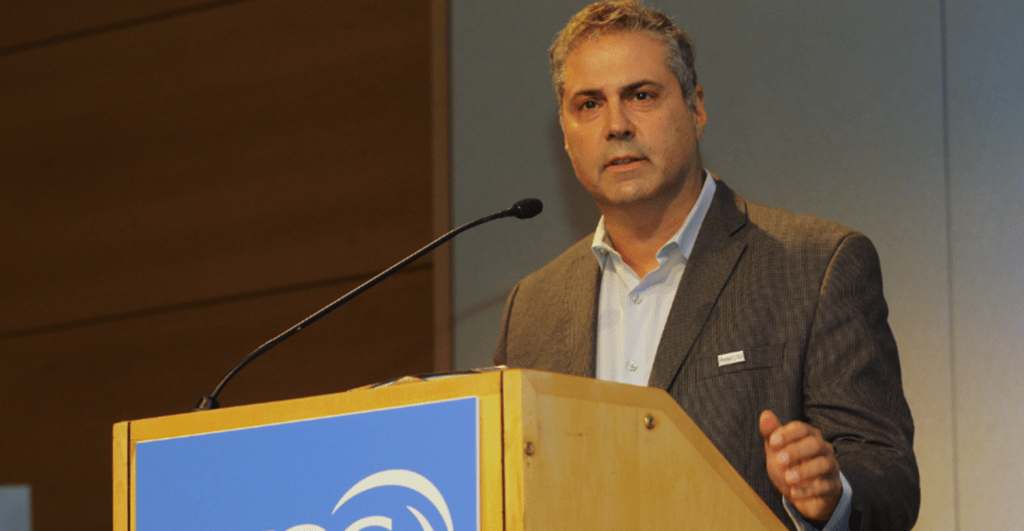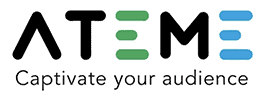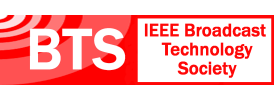- About
- Members
- Sponsors
- Subcommittees
- Technical Documents
- News
- Events
- Spotlight ATSC 3.0
- Contact Us
- Member Login
- Member Meetings
- Advanced Search
Search Site
Member Links
- About
- Members
- Sponsors
- Subcommittees
- Technical Documents
- News
- Events
- Spotlight ATSC 3.0
- Contact Us
- Member Login
- Member Meetings
- Advanced Search
Five Questions for Lechner Outstanding Contributor Honoree Alan Stein
Posted on October 10, 2021 in ATSC News

Were you surprised at being named this year’s Lechner Award winner at the 2021 ATSC NextGen Broadcast Conference in August? What happened when you heard your name?
I am truly honored to receive the Lechner Award. I was honestly surprised when I heard my name. While I had been strongly encouraged to attend the ATSC NextGen Broadcast Conference in person this year, no one tapped me on the shoulder beforehand to tell me to prepare. I realized in that moment that I needed to give an acceptance speech. Yikes!
Afterward, I think this milestone drove me to reflect on the time spent working in ATSC and other media standards and to consider what I have achieved in my career– and have yet to do.
What is your attitude and approach to ATSC activities?
When it comes to video technology, the various stakeholders — the networks, broadcast station groups, CE manufacturers and downstream MVPD operators — at times have conflicting priorities and requirements. My approach is to flesh out these issues and to try to forge a path to consensus, ideally without disenfranchising those who bring solutions that may help only a subset of the ATSC community. There are some who believe that ATSC should be more restrictive, but given the competition facing broadcast such as OTT, I believe it’s critically important to offer solutions that increase the use of ATSC 3.0 next-gen broadcasting, even if that means that sometimes the specs include options for broadcast that won’t be used by everyone in the video ecosystem. SHVC is an example.
My approach with the international work of PT-6 is more open-ended, since we address emerging opportunities. I have fortunately been able to enlist the support of several long-time ATSC leaders to take key roles driving specific international opportunities within PT-6. I’m really proud that PT-6 has spun off two implementation teams, to address the opportunities in India and Brazil respectively. PT-6 continues to field new and exciting engagements, each unique in scope and challenges. It’s always interesting!
As a Lechner Award honoree, you are part of a small group of experts who have been duly recognized for pioneering contributions. What advice would you give to someone who’s just getting started with standards work at ATSC?
It can take time to understand the business incentives that make ATSC participation worth people’s time. Try to talk to the representatives outside the meetings, go see their trade show demos, track product announcements, and build a mental model of the ecosystem.
Also, try your best to keep calm and show restraint when substantive disagreements turn into something more, and risk making a meeting go sideways. It happens. I was fortunate to have learned from Jim Kutzner, Rich Chernock and Madeleine Noland, all exemplary mentors for keeping calm and moving groups forward.
Tell us more about yourself – your work, but also the things that you do when you’re NOT at work. In other words, how do you balance your work and “rest of your life”?
My job at InterDigital is multi-faceted. Standards work intersects most other areas of the company: R&D of course, but also corporate strategy, portfolio management and licensing. In some ways it’s similar to product management; understanding customer or stakeholder needs and working with R&D to bring winning solutions to market.
Outside of work and family, I spend much of my time on music. I have been a leader and member of several music groups over the years, playing rock, blues, jazz and pop. I currently accompany three different singers, gigging outdoors and doing demo recordings. I am of course happy to be a member of the “ATSC Multicasters,” and look forward to our return from hiatus. I am also an avid cyclist — though not a particularly fast one.
Does winning the Lechner Award change your approach at all with ATSC activities?
Not at all. There’s still much work to do on the road to helping ATSC 3.0 achieve its full potential, and I intend to continue to participate, and help be a part of that future success.
Posted in ATSC News
News Categories
News Archives
Subscribe
Subscribe to The Standard, our monthly newsletter. Learn More
Join ATSC
ATSC is a membership organization with both voting and observer categories. Voting members include corporations, nonprofit organizations, and government entities, and they participate actively in the work of ATSC. Observers are individuals or entities not eligible to be a voting member.
Subscribe to our Newsletter
Subscribe to The Standard, our monthly newsletter, to stay up-to-date with ATSC news and events around the world.
Site Links
Contact Us
Advanced Television Systems Committee, Inc.
1300 I Street NW, Suite 400E
Washington, DC 20005
Do you have questions about ATSC?
About ATSC
The Advanced Television Systems Committee, Inc., is an international, non-profit organization developing voluntary standards and recommended practices for digital terrestrial broadcasting. ATSC member organizations represent the broadcast, broadcast equipment, motion picture, consumer electronics, computer, cable, satellite, and semiconductor industries. ATSC also develops digital terrestrial broadcasting implementation strategies and supports educational activities on ATSC standards.
© 2025 ATSC




































